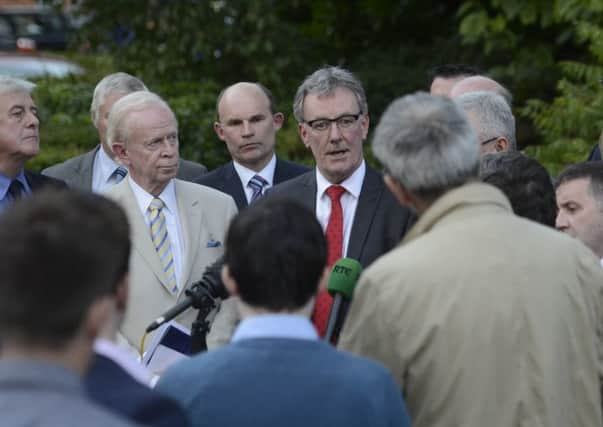‘Opposition won’t suffice; root and branch reform is needed’


Whilst not agreeing with him on the latter there were members who felt that such was the state of affairs within the NI Assembly that going into Opposition was an imperative.
Not everyone who felt this way supported John McCallister’s candidature. Many preferred Mike Nesbitt MLA as leader. He, for his part, alluded to taking the party into Opposition at some time in the future and, if elected, to putting a group in place to look at the options. If this occurred it seems to have been well below the radar but the possibility of forming an Opposition had at least been tabled.
Advertisement
Advertisement
Others, MLAs included, convinced by the argument could not bring themselves to be decisive as to timing. Underlying party loyalty and disciplinary issues also influenced the outcome. At the Leadership hustings held in Londonderry a senior member of the party who is still in position had expressed the private view that the UUP within the Assembly was for the most part in opposition anyway. This is close to a feeling within some UUP quarters that Unionism is always at its most effective when it has something to oppose. The downside of this is that as a party it has sometimes spent energy seeking solutions to problems that do not exist.
Since 2012 we have had stalled government in Northern Ireland, an increasingly disaffected electorate, Haas, the Stormont and Stormont House Agreements, stalemate over Welfare Reform and political leaders from several parties expressing the view that the Assembly is not fit for purpose as Northern Ireland slips behind economically.
Hindsight is a wonderful teacher but there can be little doubt that in the light of events the failure to argue for Opposition with fundamental review more energetically has proven to be an exercise in self –deception of which more than the UUP has been guilty. Convictions only now being voiced more strongly failed to prompt significant action as managing party interests claimed precedence over transformation
The action that the UUP now takes in withdrawing from the Executive to possibly form an opposition is being presented in various lights. UUP Leader Mike Nesbitt MLA presents it as a point of principle and a response to a breakdown of trust within the Executive parties following the recent murder in Belfast. Others see it as principles being used as camouflage for electioneering. Meantime governance and representation falls victim to a monotonous muddle of recrimination and policing and justice loses credibility.
Advertisement
Advertisement
The provision of Official Opposition will not suffice. Radical root and branch review and a return to the values embedded in the Good Friday Agreement may offer a way forward
It is time for the governments in London, Dublin and Washington who played pivotal roles in establishing the structures to cease the role of indulgent referee and adopt a more robust approach to initiating change.
Without this, it is entirely likely that the main participants will continue along routes mapped by their interests and poor judgement.